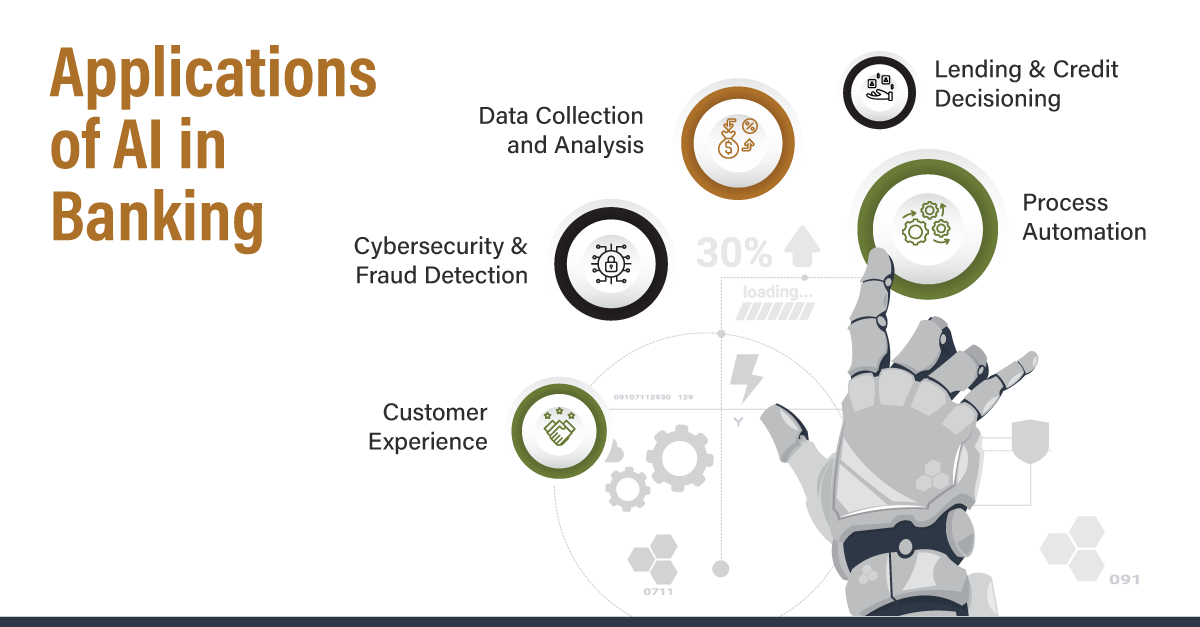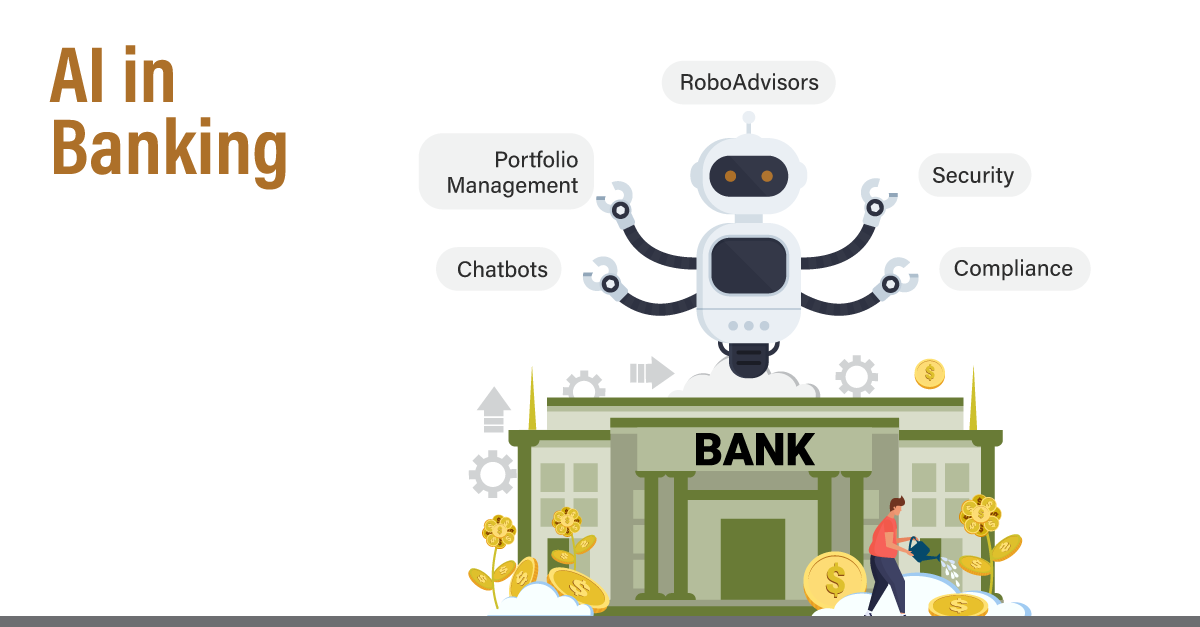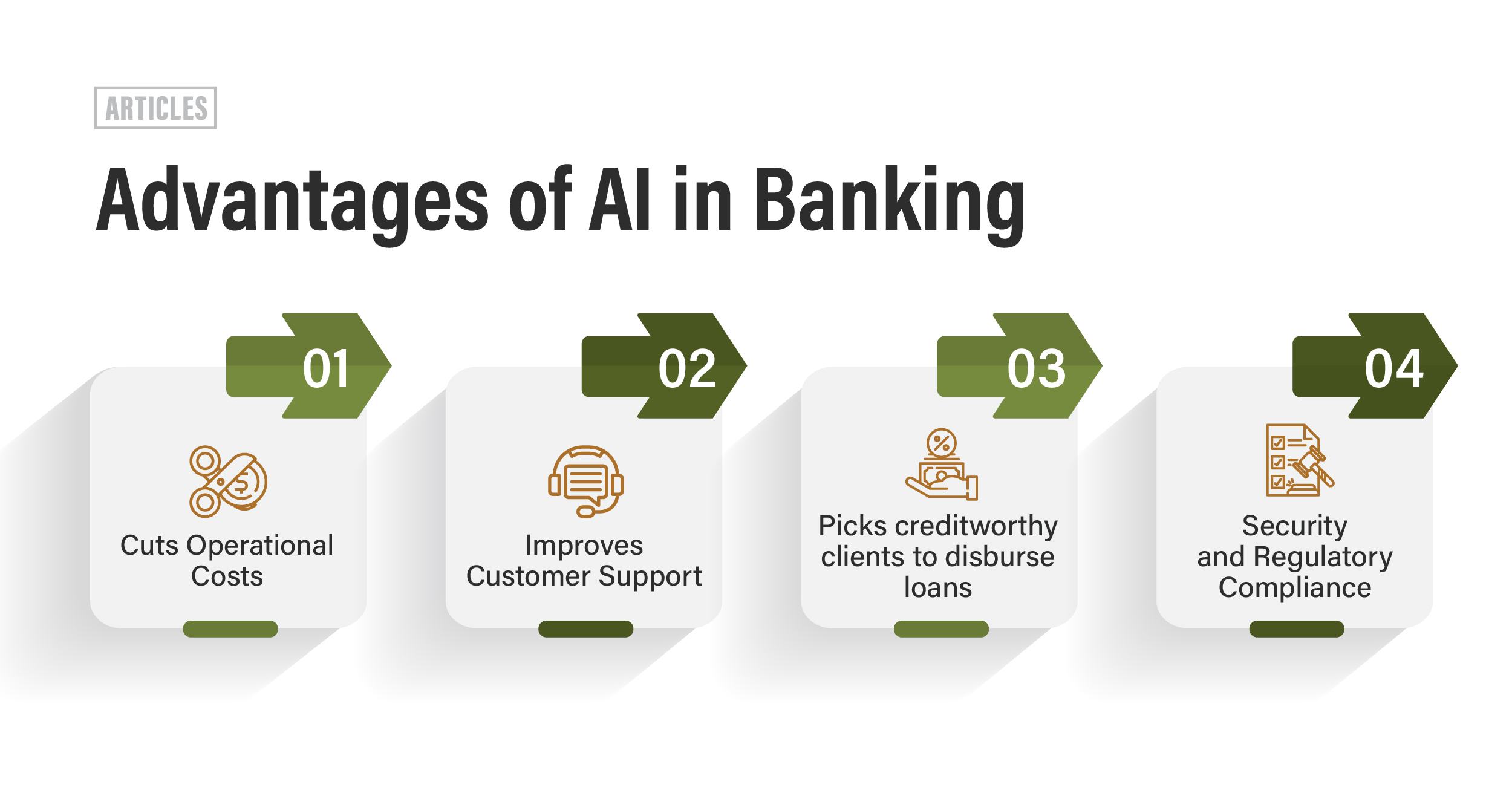Artificial Intelligence (AI) has disrupted most industries, and the banking and financial services sector is no exception. Today, AI, Analytics and Automation impact all bank processes, from data collection, cybersecurity, wealth management, lending, and regulatory compliance to CRM.
AI helps banks to process large volumes of data, evaluate market sentiments and predict the latest market trends, currencies, and stocks. In this article, we explore the all-invasive effects of AI in banking from application areas, use cases and advantages.
Application Areas of AI in Banking
Here are some typical applications of AI in banking and financial services:
- Data Collection and Analysis - AI-powered algorithms can automate data collection from various sources such as social media, news articles, and financial reports. This results in faster and more accurate data collection, eliminating the need for manual data entry, reducing errors, and improving data
- Lending & Credit Decisioning - An AI-based loan and credit system can investigate customers' limited credit history to determine their creditworthiness. Also, they can recognize behavioral patterns to identify the increased risk of defaults and send warnings to banks.
- Process automation - Robotic process automation (RPA) algorithms help banks by automating time-consuming, repetitive, and rule-based tasks such as data entry, account reconciliation, and report generation. This also allows users to focus on more complex processes requiring human involvement.
- Cybersecurity and fraud detection - AI can improve the security of online finance, track loopholes, and minimize risks. AI and Machine Learning (ML) can easily identify fraudulent activities and alert customers and banks.
- Customer experience - AI technology reduces the time to record Know Your Customer (KYC) information and eliminates Integrating artificial intelligence in banking and finance services enhances the consumer experience and increases the level of convenience for users.

AI in Banking Segments
AI-powered technologies have been implemented in various banking segments to optimize operational efficiency, enhance data analysis, and provide personalized services. Let us explore the different applications of AI across banking segments and the benefits they bring to the industry.
- Retail Banking - AI helps in fraud detection, vulnerable customer identification, customer engagement and intelligent document ingestion.
- Corporate Banking - ML enhances the loan approval process, Natural Language Processing (NLP) increases credit risk management and underwriting productivity, and intelligent chatbots accelerate loan processing.
- Wealth Management - AI allows wealth managers to micro-segment their prospects based on more accurate data and a comprehensive range of data sources. A robo-advisor attempts to understand a customer's financial health by analyzing their shared data and financial history.

Use Cases of AI in Banking
Here are some of the most prominent use cases of AI in banking and their potential to transform the industry:
- AI Chatbots - AI chatbots can assist customers 24*7 and respond accurately to their queries. These chatbots provide a personalized experience to users.
- Portfolio Management - AI enables financial advisors and investors to make better-informed decisions by analyzing vast amounts of real-time data. AI algorithms can also help identify patterns and trends, optimize portfolio allocation, and predict market movements.
- Security - AI helps improve security through fraud detection, analysis of customer behavior and transaction data to identify patterns that indicate fraudulent activity. AI can prevent financial losses, protect customers' funds, and combat money laundering by analyzing large volumes of transaction data and identifying suspicious patterns or transactions.
- Compliance - AI-powered risk assessment tools can analyze vast amounts of data to identify and recommend mitigating potential compliance risks. AI can also assist in real-time monitoring transactions to detect any unusual activity indicating non-compliance. AI software boosts the skills of compliance officers and allows them to scale their operations.
- Robo Advice - A robo-advisor analyses a customer's financial health by analyzing their shared data and financial history. They use AI-powered algorithms to analyze customers' investment goals, risk tolerance, and financial situation to provide personalized investment advice.
Advantages of AI in Banking
With the above applications and use cases, it is evident that banks and the financial services industry will lean on the evolving AI technology to achieve better cost and process efficiency while generating better profitability. Let us look at some of the most common advantages that are leading to more extensive use of AI in banking:
- Cuts Operational Costs - AI-powered systems and applications can perform repetitive tasks accurately. This intelligent process will ensure minimum operational costs and avoid errors.
- Improves Customer Support - AI in banking helps banks provide the right services at the right time and is available 24*7.
- Picks creditworthy clients to disburse loans - AI systems also make processes-based credit decision systems to analyze customer transaction data and determine whether the customer is eligible for the loan in minutes.
- Security and regulatory compliance - AI-powered systems can assist banks in reporting and documenting compliance activities, simplifying the audit process and reducing the risk of errors or omissions.

In conclusion, AI is revolutionizing the banking industry, creating new opportunities for innovation, efficiency, and customer experience. AI-powered solutions such as chatbots, robo-advisors, and fraud detection systems are transforming traditional banking practices, providing personalized services, and improving operational efficiency.
As the banking industry continues to evolve, AI is poised to become a game-changer, playing a pivotal role in shaping banks of the future.
To read more such insights from our leaders, subscribe to Cedar FinTech Monthly View
